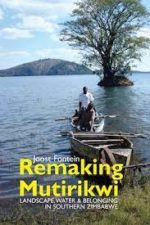Showing all 2 results
-
Against All Enemies: Inside America’s War on Terror – Hardcover
KShs 1,000.00The former White House counterterrorism czar offers a disturbing insider’s view of America’s war on terror, both before and after September 11th, including what went right or wrong, the operations of the Al Qaeda network, the Department of Homeland Security, and other crucial aspects of what the Bush administration is doing. 200,000 first printing.
-
Remaking Mutirikwi: Landscape, Water and Belonging in Southern Zimbabwe
KShs 9,100.00Finalist for the African Studies Association 2016 Melville J. Herskovits Award
A detailed ethnographic and historical study of the implications of fast-track land reform in Zimbabwe from the perspective of those involvedin land occupations around Lake Mutirikwi, from the colonial period to the present day.
The Mutirikwi river was dammed in the early 1960s to make Zimbabwe’s second largest lake. This was a key moment in the Europeanisation of Mutirikwi’s landscapes, which had begun with colonial land appropriations in the 1890s. ButAfrican landscapes were not obliterated by the dam. They remained active and affective. At independence in 1980, local clans reasserted ancestral land claims in a wave of squatting around Lake Mutirikwi. They were soon evicted asthe new government asserted control over the remaking of Mutirikwi’s landscapes. Amid fast-track land reform in the 2000s, the same people returned again to reclaim the land. Many returned to the graves and ruins of past lives forged in the very substance of the soil, and even incoming war veterans and new farmers appealed to autochthonous knowledge to make safe their resettlements.
This book explores those reoccupations and the complex contests overlandscape, water and belonging they provoked. The 2000s may have heralded a long-delayed re-Africanisation of Lake Mutirikwi, but just as African presence had survived the dam, so white presence remains active and affective through Rhodesian-era discourses, place-names and the materialities of ruined farms, contour ridging and old irrigation schemes.
Through lenses focused on the political materialities of water and land, this book reveals how the remaking of Mutirikwi’s landscapes has always been deeply entangled with changing strategies of colonial and postcolonial statecraft. It highlights how the traces of different pasts intertwine in contemporary politics through the active, enduring yet emergent, forms and substances of landscape.Joost Fontein is Director of the British Institute in Eastern Africa and Lecturer in Social Anthropology at the University of Edinburgh.


